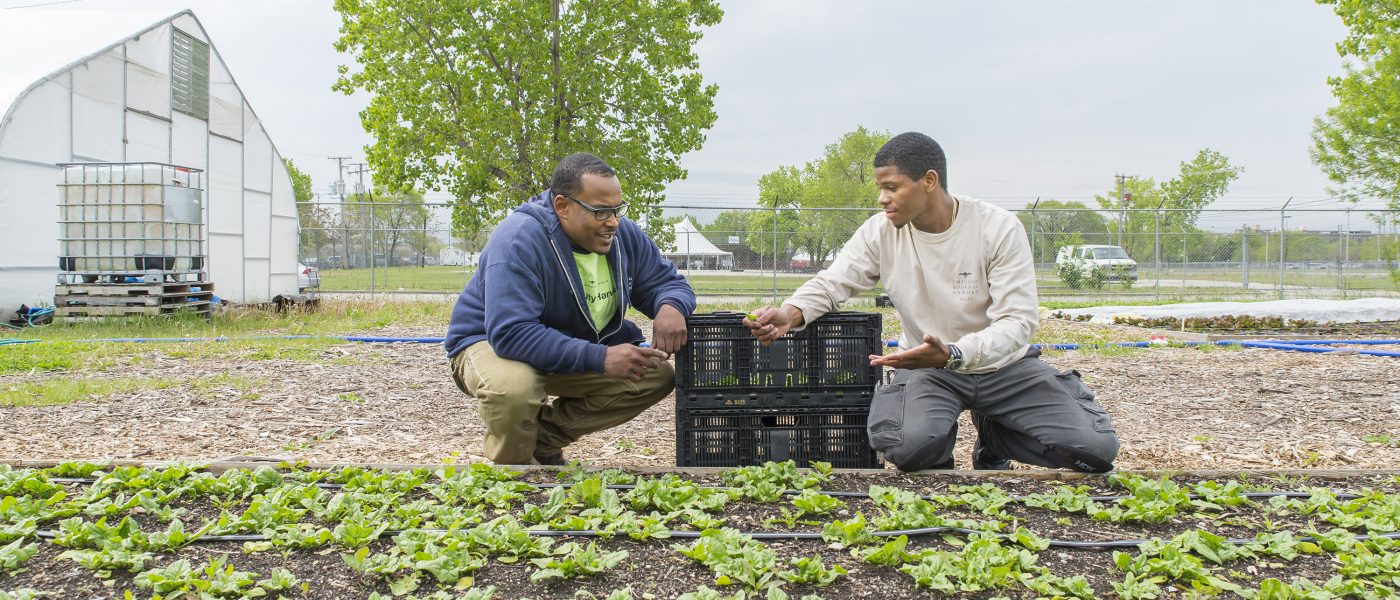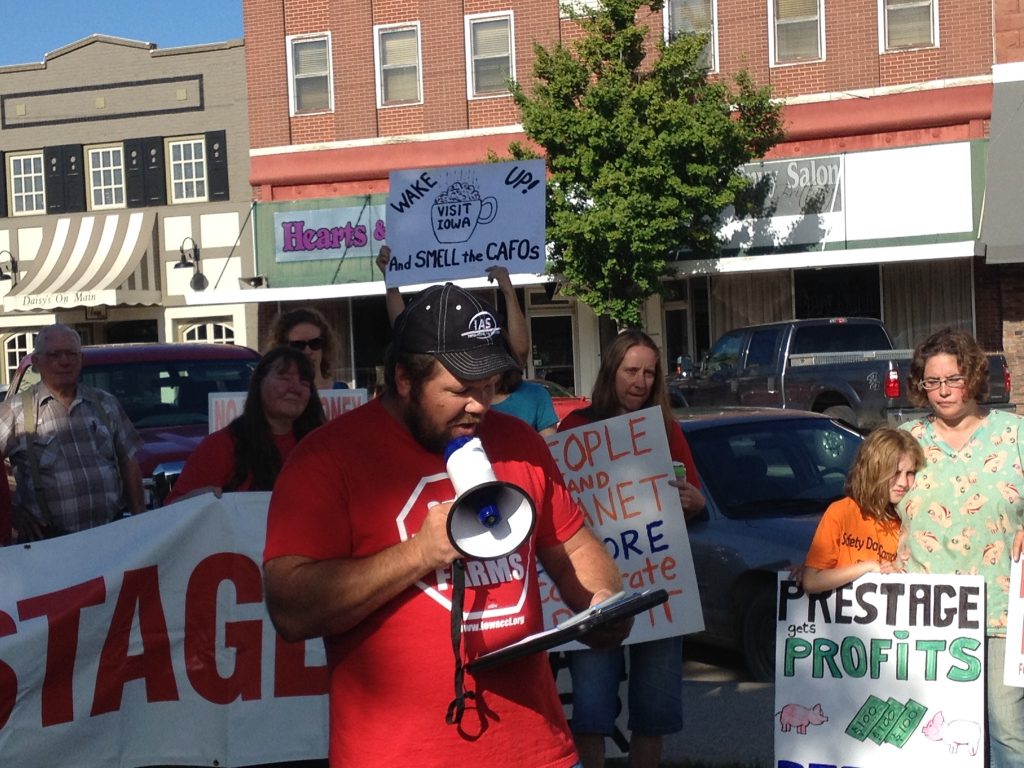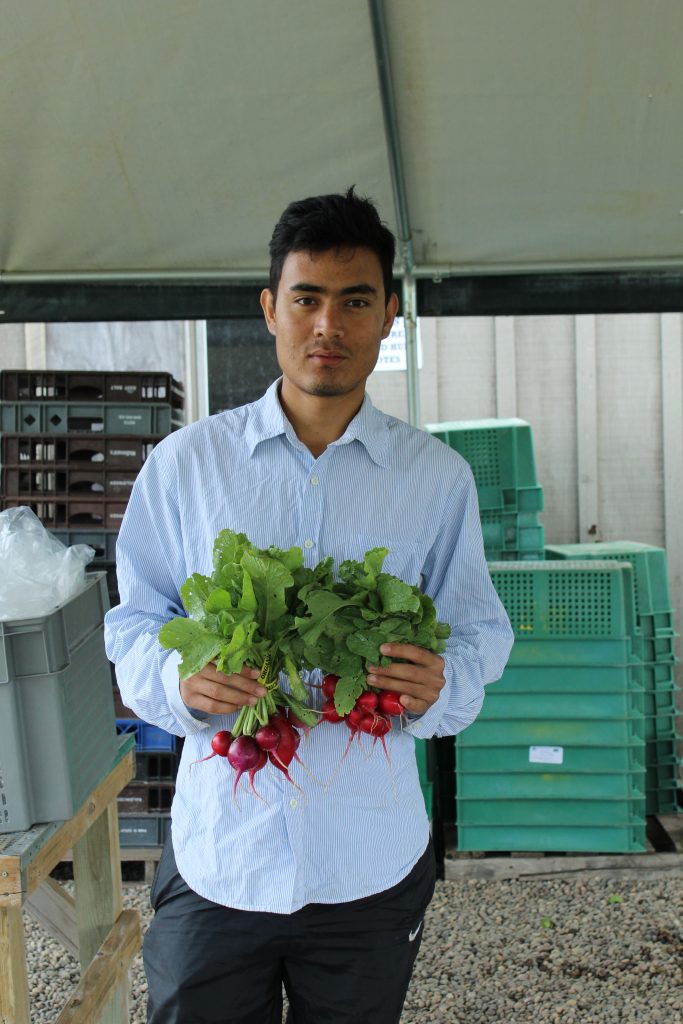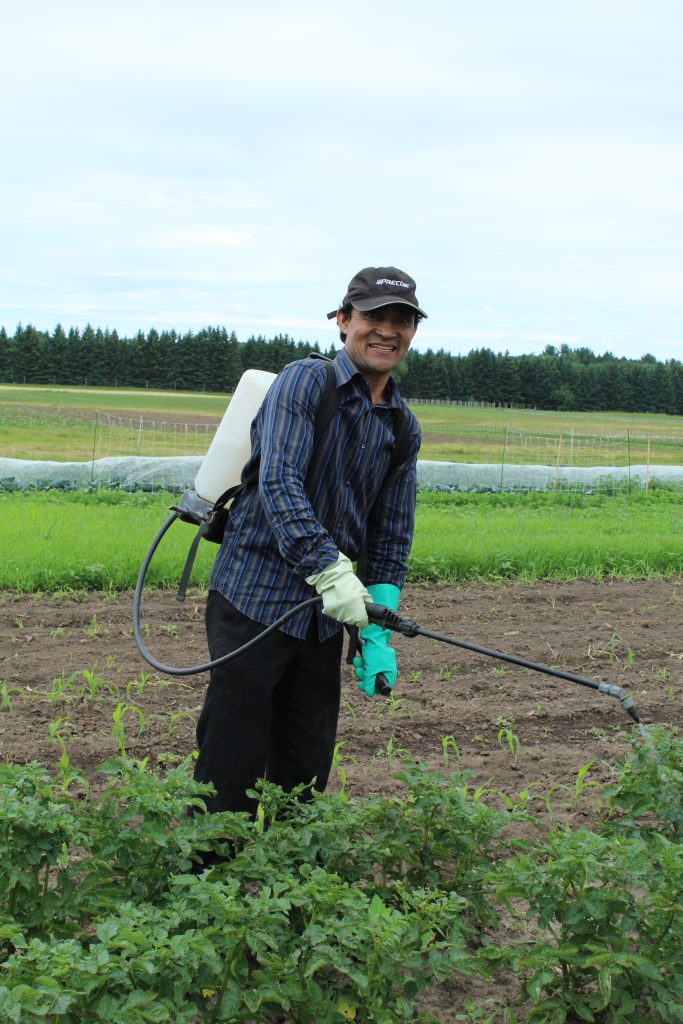I was given the rewarding project of reading our grantees’ six-month reports to learn what they have been up to this year. These organizations are doing wonderful things, and I felt that some of them were too good not to share. I’ve condensed and edited each submission for clarity, but these are our grantees’ own stories in their words. I hope you’ll be as inspired as I am by the uplifting work that’s happening all over our country.
Iowa Citizens for Community Improvement, in Des Moines, Iowa, is an organization that works to inform and energize communities around the issue of factory farming They used their grant to organize in opposition to factory farm development in Prestage, Iowa.
In March 2016, Prestage Farms – the nation’s fifth largest hog producer – announced it wanted to construct a massive slaughterhouse in Mason City that would eventually kill 20,000 hogs per day. This meant hundreds more factory farms would be required in Iowa to meet the plant’s demand for hogs.
Citizens for Community Improvement (CCI) members and the community quickly organized and built a powerful opposition campaign to pressure elected officials: they held planning meetings, called city councilors, wrote Letters to the Editor, set up yard signs, held protests, gathered over 3,000 petition signatures by going door-to-door, and delivered more than 15 hours of public testimony.
Back in 2011, Summit Farms had constructed a 3,000-head cattle factory farm about half a mile north of Nick Schutt’s farm. Schutt had to deal with odor, fly infestation, and poor road conditions caused by the high volume of trucks driving by his house. When Schutt discovered Iowa CCI in 2015, he realized he wasn’t alone. He met other factory farm fighters at a local clean water meeting, and joined CCI members in their protesting, and lobbied for clean water and family farmers at the statehouse.
Because of this previous experience, Schutt was a source of both information and inspiration to the Mason City community, and he helped propel the fight forward even when it seemed hopeless. Even though he lived an hour from the proposed facility, Schutt still attended every planning session and every city council hearing. He spoke with community leaders to gather valuable intel, collected hundreds of petition signatures, and shared his own powerful story as a family farmer affected by corporate agriculture.
In just two months, CCI successfully convinced the city council to vote down the project, which at first seemed like a done deal. The fight against Prestage received statewide and front page media coverage, generating dozens of Letters to the Editor and stories in daily and weekly newspapers. It engaged longtime CCI members and developed new leaders in CCI’s statewide fight against factory farms. When the slaughterhouse was shut down in Mason City, Schutt didn’t stop: he has continued reaching out to other communities targeted by Prestage, most recently organizing in Wright County!
Minnesota Food Association, in Marine on St. Croix, Minnesota, works to create a more sustainable local food system by growing sustainable food producers and enhancing their connections to markets and resources. They used their Farm Aid Funding to support the Big River Farms Training Program, a three-year program tailored to historically underserved, immigrant and minority farmers.
For Suraj Budathoki, farming is a family affair. He spends nearly thirty hours a week cultivating his plot on top of his part time job, but the hard work doesn’t stop with him. His father Chandra joins him on weekends and as often as he can during the week. His mother and siblings frequently make trips to the farm to pitch in and help out. This is for a good reason— the food they grow feeds their family and friends. Suraj estimates that they sell about half of what they produce and the rest is shared among his family and community.
“I like nature and working in the environment. It’s my passion.” ~Suraj Budathoki
Suraj, a Bhutanese refugee from Nepal, spent his youth living in a refugee camp. His father worked outside of the camp at a farm. When the family came to the United States in 2011 as part of a refugee resettlement program, the family began planting in a community garden. Suraj’s father learned about the Farmer Training Program at the Minnesota Food Association but wasn’t able to participate because of his work commitments. Suraj joined the program instead.
In Nepal, Suraj’s father worked on a traditional farm growing corn and rice. The family is growing different crops now. Here, they grow a variety of produce. Some of their crops are new to them, like kale and cabbage. They intend to grow a large variety of crops in their first year and then see which “grows nice” and has a better market value. The Farmer Training Program has been instrumental in helping Suraj learn about how to market his produce. The step-by-step advice, the access to equipment and community support has been a huge help. “I like nature and working in the environment. It’s my passion,” Suraj says. “I thought America was all cities and buildings. I didn’t picture the farmland.”
Chicago Botanic Garden, in Glencoe, Illinois, tends to Chicago’s network of public gardens. Their Farm Aid grant supports the Windy City Harvest program, which provides aspiring urban farmers with training, tools and resources to develop and expand their urban farm businesses.
Stacey Kimmons encountered Windy City Harvest (WCH) as a participant in the garden program at the Cook County Sheriff’s Vocational Rehabilitation Impact Center in 2013. After completing his sentence, he joined WCH Corps in a 14-week transitional job. For the first six to seven weeks, he says, “I didn’t think I could do it. But then I saw the plants growing, and I fell in love with farming. I was talking to the plants and telling them to grow.”
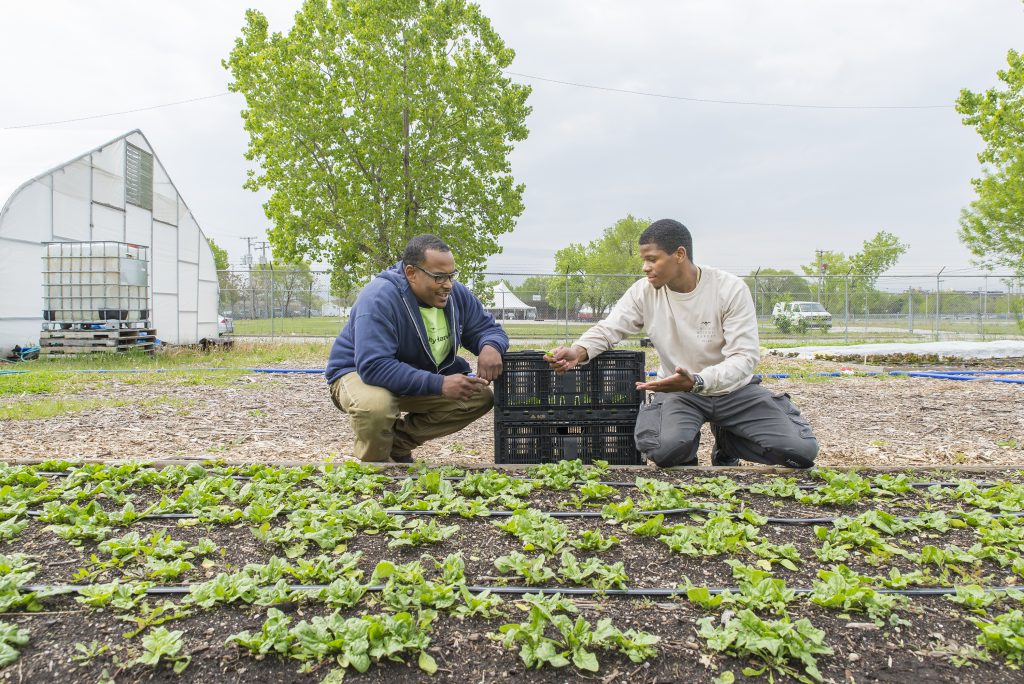
Stacey Kimmons trains an Apprenticeship student on the proper grading of spinach for market boxes at the Rodeo Farm. Photo: Chicago Botanic Garden.
Stacey completed the apprenticeship program and business certificate in 2014, and then applied and was accepted as a WCH incubator farmer. In 2015 he established his business, Return to Life Farming. With WCH staff help, Stacey learned to recruit volunteers, and is selling to the Women, Infants and Children (WIC) program. He also contributes to Remaking the World Veterans Center and local shelters.
“The thing that makes farming lovable to me, honestly, is that I can wake up in the morning and don’t have to say, ‘Oh, not this again.’ I can’t wait to get to work, to get to the farm. I can’t wait for the sun, breeze, rain to hit me. I want to feel it all when it comes to the farm.” ~Stacey Kimmons
In 2016, Stacey was hired as the site coordinator for Rodeo Farm, one of WCH’s most significant production sites. The position allows him to work with current WCH Corps trainees, imparting on them the strict discipline he believes helped him thrive when he was just starting with WCH.
Stacey believes that WCH helped him find his career. Even in WCH Corps, he found the opportunity as much more than just a job to make money. Farming is now an integral part of his future. He is working to complete his associate’s degree in the culinary arts from Kennedy-King College and plans to find his own farmland in Chicago in 2017 to marry these two passions. In whatever way Stacey pursues his path, farming will be a part of it.
Visit our virtual Grant Quilt to view how Farm Aid threads together a vibrant network of family farm organizations across the country. Meet all of Farm Aid's current grantees.Next
Zachari Curtis
